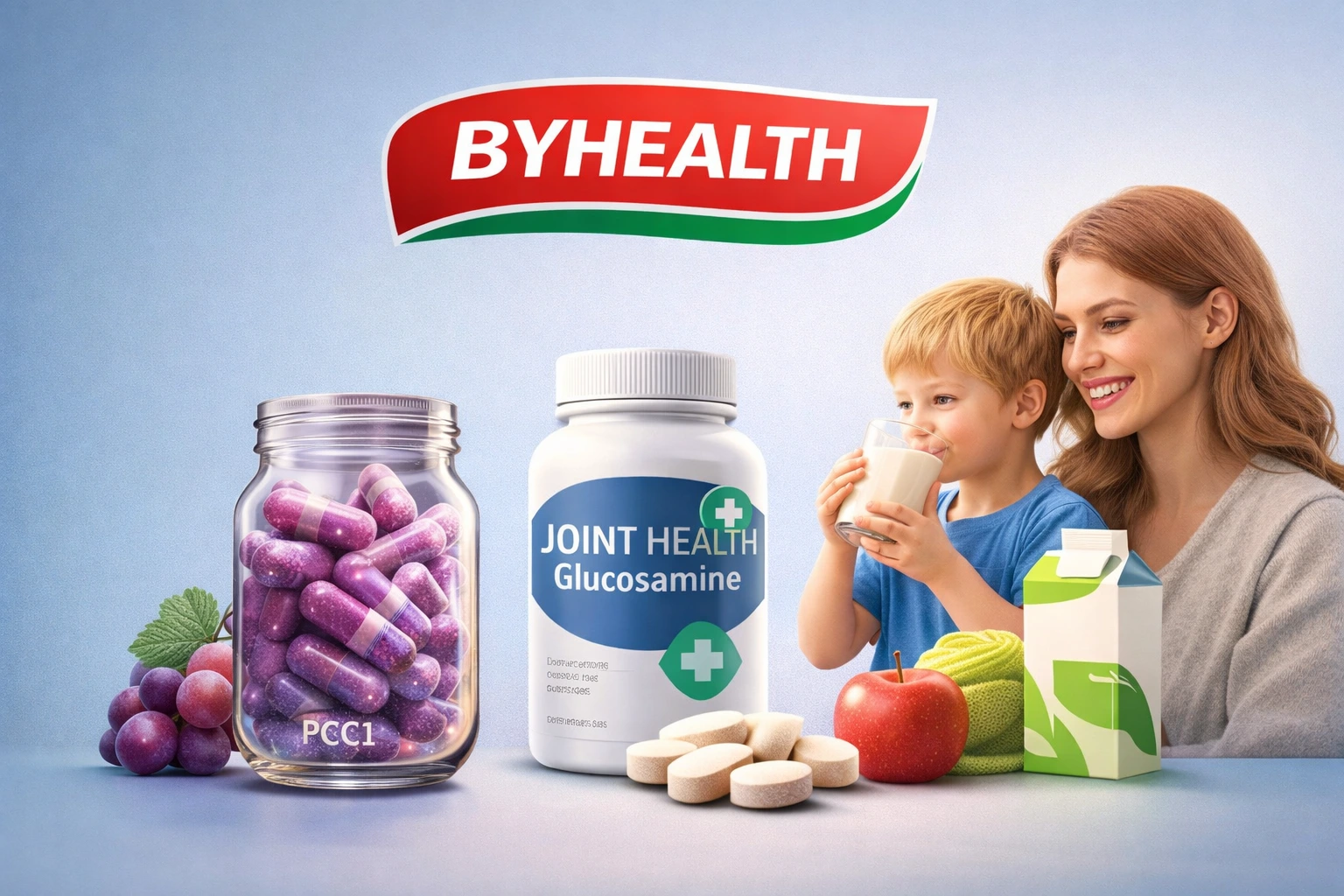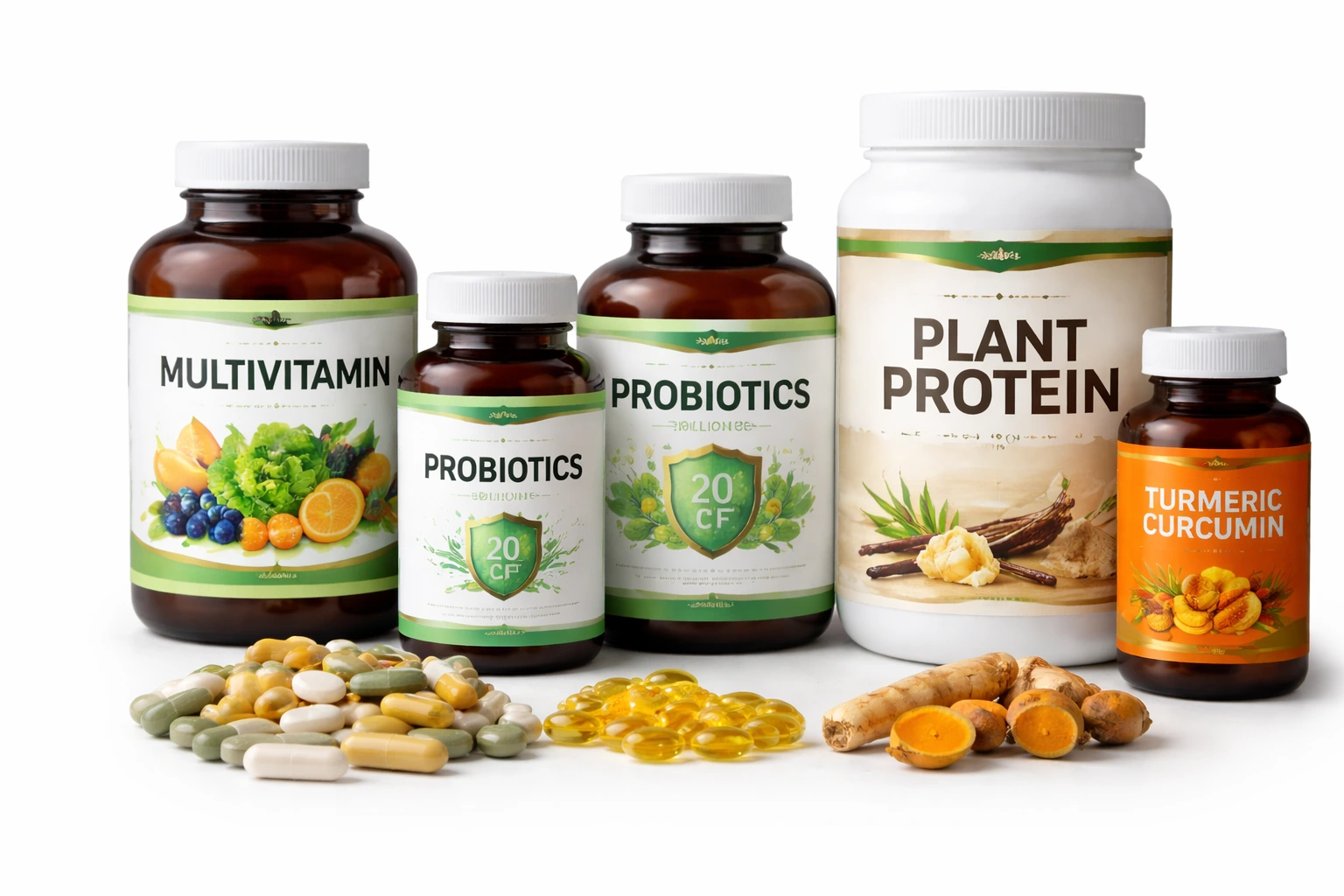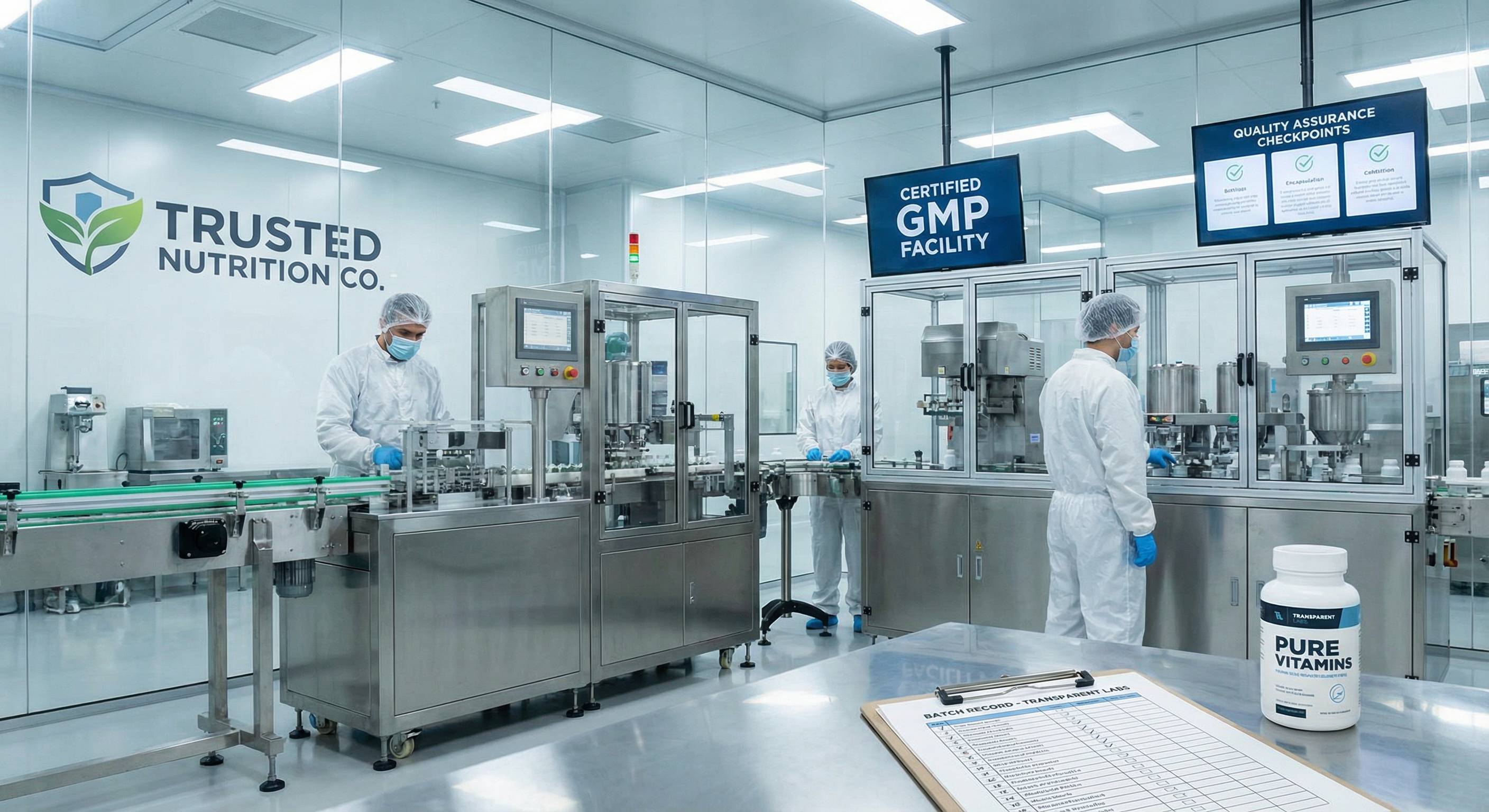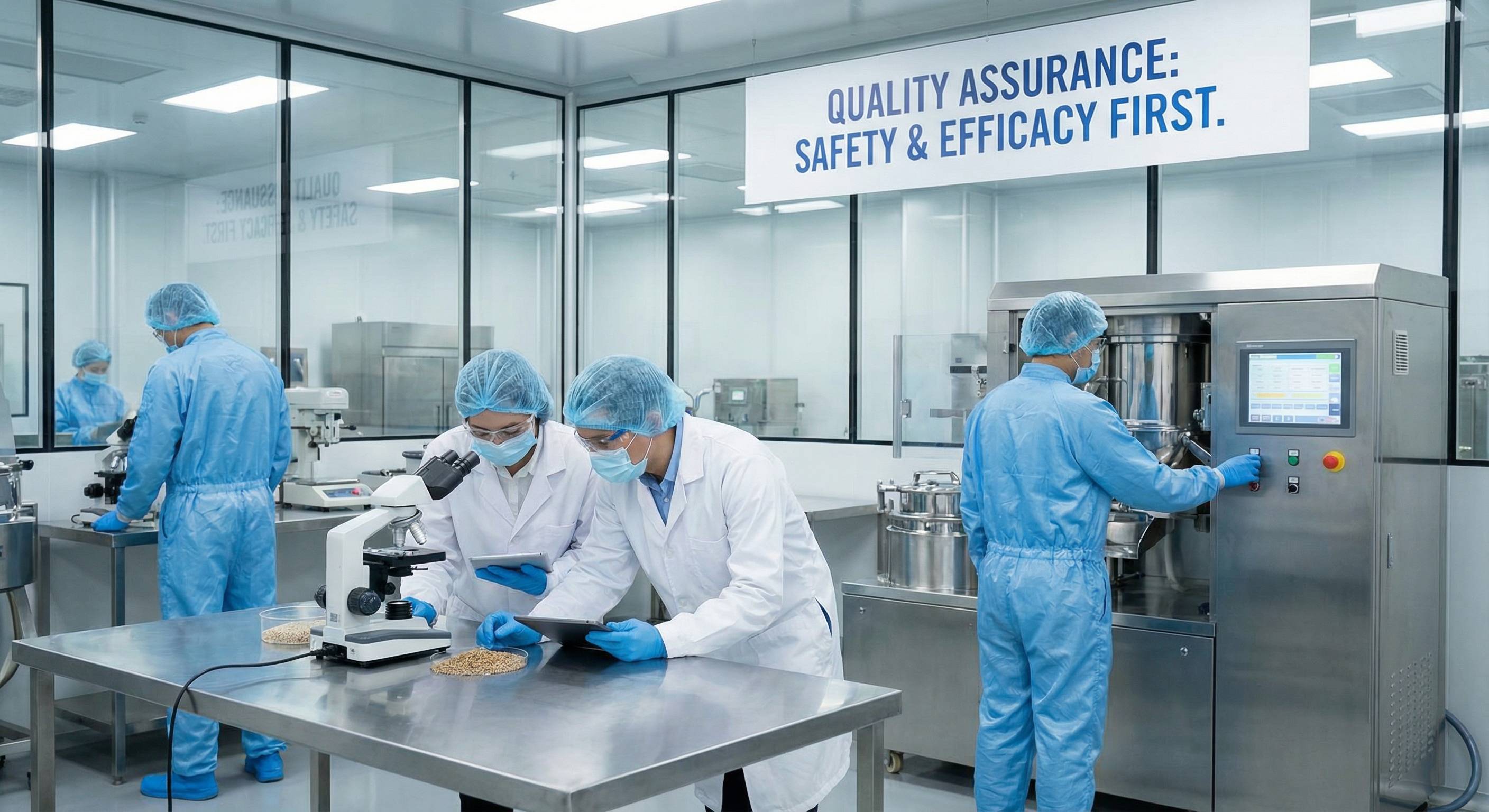The booming health and wellness market is increasingly driven by consumer demand for plant-based, vegan, and natural products. Within the dietary supplement industry, a pivotal manifestation of this trend is the significant rise of plant-based capsules. Unlike traditional animal-derived gelatin capsules, these innovative alternatives offer an ideal solution for vegetarians, vegans, and consumers with ethical, cultural, or religious concerns about animal products.
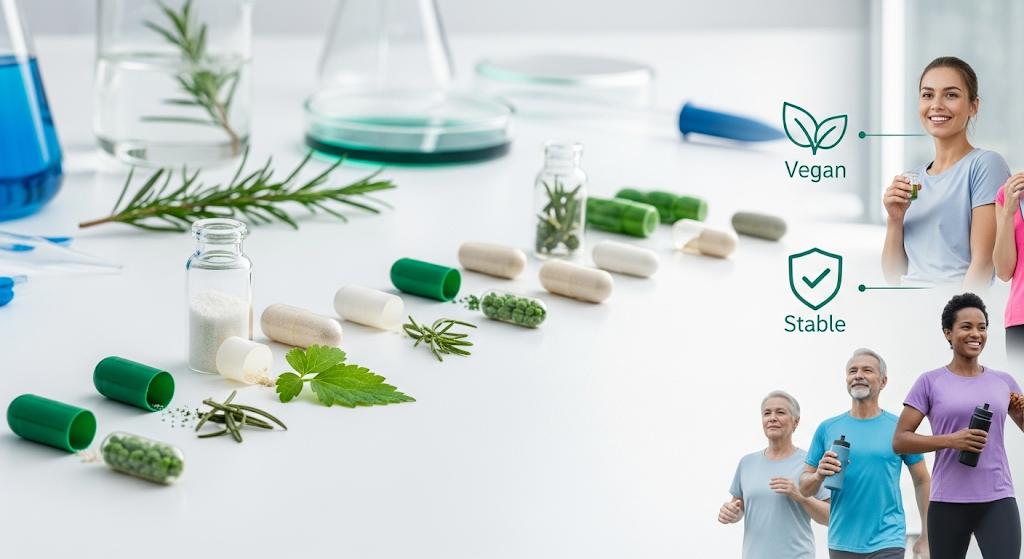
This comprehensive guide will delve deep into the composition of plant-based capsules, explore their myriad advantages over conventional gelatin, examine their diverse applications across various supplement types, and discuss the crucial quality and regulatory considerations that underpin their widespread acceptance. Whether you're a consumer seeking healthier, more ethical choices or a brand looking to expand your product line with cutting-edge delivery systems, understanding the intricate world of plant-based capsules is now more vital than ever.
Decoding the Composition of Plant-Based Capsules
Plant-based capsules are primarily engineered from cellulose derivatives extracted from plants. Currently, the two most prevalent types dominating the market are HPMC capsules and Pullulan capsules, each boasting unique properties that cater to specific formulation needs.
1. Hydroxypropyl Methylcellulose (HPMC) Capsules
-
Origin and Derivation: HPMC (Hydroxypropyl Methylcellulose) capsules are meticulously derived from plant cellulose, a naturally occurring polymer abundant in the cell walls of trees (like pine or spruce wood pulp) or cotton. This natural origin firmly establishes them as a truly vegan, vegetarian, and plant-friendly option, making them suitable for a vast and growing consumer base. The cellulose is chemically modified to create HPMC, which is then used to form the capsule shells.
-
Key Properties: HPMC capsules are highly regarded for their exceptional chemical stability and notably low moisture content. Their inert nature means they exhibit minimal reactivity with the ingredients they encapsulate, reducing the risk of unwanted chemical interactions. This low moisture content is particularly advantageous for protecting highly hygroscopic (moisture-sensitive) or moisture-reactive ingredients. Furthermore, they are inherently free from animal by-products, gluten, and common preservatives, aligning perfectly with "clean label" consumer preferences.
-
Widespread Acceptance: Due to their proven stability, safety profile, and inertness, HPMC capsules have gained extensive acceptance and widespread use not only in the dietary supplement industry but also in the pharmaceutical sector globally. Their long history of safe use and compliance with various regulatory standards makes them a trusted choice for manufacturers worldwide.
2. Pullulan Capsules
-
Origin and Derivation: Pullulan capsules are crafted from pullulan polysaccharide, a fascinating natural polymer produced through the controlled fermentation of starch (commonly tapioca starch) by a specific non-pathogenic fungus called Aureobasidium pullulans. This unique fermentation process renders them entirely natural and sustainable.
-
Key Properties: A defining characteristic of Pullulan capsules is their superior oxygen barrier property. This makes them an outstanding choice for encapsulating ingredients that are highly sensitive to oxidation, such as certain delicate botanicals, antioxidants, or probiotics, helping to preserve their integrity and potency over time. They are also known for their exceptional transparency, allowing the encapsulated product to be clearly visible, which can be a desirable aesthetic quality for certain brands. Moreover, Pullulan capsules are naturally non-GMO, appealing to consumers seeking products free from genetically modified organisms.
-
Environmental Appeal: Their natural fermentation origin and the sustainable process by which they are produced lend them a strong appeal for environmentally conscious brands and consumers.
Beyond these two primary types, the industry is continually researching and developing other innovative plant-based materials to cater to an even wider array of formulation challenges and evolving market demands, signaling a dynamic future for capsule technology.
The Distinct Advantages of Plant-Based Capsules: A Superior Choice
The surging popularity of plant-based capsules is no mere coincidence; it's a direct result of the significant advantages they offer over their traditional gelatin counterparts. These benefits address critical consumer needs and provide strategic opportunities for brands.
1. Unparalleled Dietary Inclusivity
-
Vegan and Vegetarian Friendly: The most obvious and impactful advantage is their complete absence of animal-derived ingredients. This makes them unequivocally suitable for vegan and vegetarian diets, immediately broadening a product's appeal to a substantial and growing demographic of consumers who strictly adhere to these lifestyles.
-
Religious and Cultural Adherence: Plant-based capsules naturally conform to various religious dietary laws, including Kosher and Halal requirements. This eliminates the concerns associated with the animal source of gelatin (often bovine or porcine), allowing brands to serve diverse cultural and religious markets without compromise.
-
Allergen Avoidance: While gelatin itself is not a common allergen, some consumers may have sensitivities or prefer to avoid animal proteins. Plant-based capsules offer a naturally allergen-free alternative in this context.
2. Superior Stability and Moisture Sensitivity Management
-
Low Moisture Content: A critical technical advantage, particularly for HPMC capsules, is their inherently lower moisture content compared to gelatin. This property makes them an ideal encapsulation solution for hygroscopic (moisture-sensitive) ingredients like probiotics, enzymes, and certain vitamin powders. By minimizing moisture transfer, plant-based capsules significantly reduce the degradation rate of these delicate active ingredients, thereby extending the product's shelf life and ensuring the supplement maintains its labeled potency.
-
Robustness Across Conditions: These capsules exhibit greater physical stability across a wider range of temperature and humidity conditions. Unlike gelatin capsules, which can become soft and sticky in high heat or brittle in very low humidity, plant-based capsules maintain their integrity, crucial for product quality during global shipping and storage in diverse climates.
3. Neutral Taste and Odor Profile
-
Flavor-Free Delivery: Plant-based capsules are intrinsically tasteless and odorless. This is a significant benefit for supplements containing ingredients with strong or unpleasant flavors (e.g., certain fish oils, garlic extracts, some botanicals) or those that might develop an aftertaste. By providing a neutral casing, they ensure a more pleasant and palatable consumption experience for the end-user, which in turn can improve compliance and repeat purchases.
4. Reliable Dissolution Profile
-
Effective Disintegration: Plant-based capsules are designed to dissolve effectively and predictably within the gastrointestinal tract. This ensures that the encapsulated active ingredients are released in a timely manner, allowing for optimal absorption by the body. Standard plant-based capsules typically disintegrate rapidly in the stomach, while specialized enteric-coated plant-based capsules can be formulated to pass through the stomach intact and dissolve specifically in the small intestine, protecting acid-sensitive compounds.
5. Enhanced Brand Image and Consumer Appeal
-
Aligning with Clean Label Trends: Plant-based capsules perfectly align with the contemporary consumer demand for "clean label" products—those with transparent ingredients, minimal processing, and natural origins. Brands that opt for plant-based capsules can prominently feature terms like "Vegan," "Plant-Based," and "Vegetarian" on their packaging and marketing materials, significantly enhancing their appeal to an increasingly conscious consumer base.
-
Streamlined Production (for Manufacturers): For contract manufacturers, using plant-based capsules can simplify inventory management and production lines by eliminating the need for separate runs or extensive cleaning protocols required to avoid cross-contamination with animal-derived ingredients, especially for facilities aiming for specific allergen-free or dietary certifications.
Balanced Perspective: Considerations for Plant-Based Capsules
While plant-based capsules offer numerous compelling advantages, a comprehensive understanding also involves acknowledging certain practical considerations.
-
Cost Implications: Generally, the manufacturing cost of plant-based capsules, particularly those with specialized formulations or coatings, can be slightly higher than that of standard animal gelatin capsules. This difference, however, is often justified by the significant added value, enhanced brand perception, and expanded market access they provide. As demand and production scale increase, the cost differential continues to narrow.
-
Filling Performance (for Manufacturers): Although advancements in capsule technology have greatly improved, some manufacturers, especially those using older or less optimized filling machines, might require minor adjustments to their equipment settings. Slight differences in the elasticity or static properties of plant-based capsules compared to gelatin might necessitate fine-tuning for optimal high-speed filling performance. However, modern encapsulation equipment is increasingly designed with plant-based capsules in mind.
-
Specific Formulation Nuances: For highly niche or challenging formulations, such as certain very viscous liquids or extremely volatile oils, traditional gelatin softgels have historically been the go-to solution. However, it's crucial to note that plant-based softgel technologies are rapidly advancing, offering competitive and often superior alternatives even for these complex applications. Brands should consult with their contract manufacturer to determine the best capsule type for their specific product.
Diverse Applications of Plant-Based Capsules Across Supplement Categories
The versatility of plant-based capsules has led to their widespread adoption across almost every conceivable supplement category, proving their effectiveness as a universal delivery system.
-
Vitamins & Minerals: From highly sensitive water-soluble vitamins (like Vitamin C and various B vitamins) that degrade with moisture, to fat-soluble vitamins (A, D, E, K) and essential minerals (calcium, magnesium, zinc), plant-based capsules provide a stable and protected environment, ensuring the potency of these vital micronutrients.
-
Probiotics & Enzymes: This category represents one of the most significant triumphs for plant-based capsules. Probiotics (live microorganisms) and digestive enzymes are inherently vulnerable to heat, moisture, and stomach acid. The low moisture content of HPMC and the oxygen barrier properties of Pullulan capsules offer superior protection, helping to maintain the viability (number of live CFUs) of probiotics and the activity of enzymes, thereby significantly extending their shelf life and ensuring consumers receive the full intended benefit.
-
Herbal Extracts & Botanicals: For dry powdered herbal extracts and sensitive botanical compounds (e.g., curcumin, green tea extract, adaptogens), plant-based capsules serve as an ideal inert carrier, protecting active constituents from environmental degradation and preserving their therapeutic efficacy.
-
Amino Acids & Proteins: Various amino acid supplements (e.g., BCAAs, L-Glutamine, Creatine) and protein hydrolysates are commonly encapsulated in plant-based capsules, offering a convenient and precise dosage form.
-
Specialized Market Segments: Plant-based capsules are particularly attractive to niche markets, including:
-
Athletes: Seeking clean, performance-enhancing supplements without animal derivatives.
-
Individuals with Allergies: Looking for products free from common allergens that might be present in some gelatin sources.
-
"Clean Label" Enthusiasts: Consumers who prioritize transparency, naturalness, and ethical sourcing in their dietary choices.
-
Regulatory Aspects and Quality Assurance for Plant-Based Capsules
Consumer trust in supplements hinges on their safety and efficacy, which are underpinned by stringent regulatory oversight and robust quality assurance. Plant-based capsules are no exception to these high standards.
-
Safety and Regulatory Approval: The primary materials used in plant-based capsules, such as HPMC and Pullulan, are widely recognized as safe (GRAS, Generally Recognized As Safe, in the U.S.) by leading regulatory bodies worldwide, including the U.S. Food and Drug Administration (FDA), the European Food Safety Authority (EFSA), and Health Canada. They undergo rigorous toxicological assessments to ensure their suitability and safety for human consumption.
-
Current Good Manufacturing Practices (cGMP): Both the production of the plant-based capsule shells themselves and the encapsulation process (filling them with active ingredients) must strictly adhere to Current Good Manufacturing Practices (cGMPs). In the U.S., this means compliance with 21 CFR Part 111 for dietary supplements. cGMPs mandate comprehensive quality systems covering every stage: raw material sourcing, facility design, equipment maintenance, production processes, quality control testing, packaging, labeling, and record-keeping. This ensures the final product consistently meets predefined quality attributes for purity, potency, identity, and composition, and is free from contaminants.
-
Rigorous Quality Control & Testing: Reputable manufacturers conduct extensive quality control on plant-based capsules. This includes testing for:
-
Physical Properties: Capsule dimensions, mechanical strength, elasticity, and uniform weight.
-
Disintegration/Dissolution: Ensuring the capsule breaks apart and releases its contents effectively within the specified timeframe.
-
Microbial Purity: Testing for absence of harmful bacteria, yeast, and mold. Once filled, the finished supplement product undergoes additional testing to verify the content of active ingredients and confirm the absence of contaminants, upholding the highest standards of safety and efficacy.
-
-
Third-Party Certifications: Many products utilizing plant-based capsules go a step further by obtaining third-party certifications, which provide independent verification of claims and enhance consumer confidence. These often include:
-
Vegan Certified: Confirms no animal products are used at any stage.
-
Non-GMO Project Verified: Ensures the product is free from genetically modified organisms.
-
Kosher/Halal Certified: Verifies compliance with specific religious dietary laws.
-
NSF International / USP Verified: Independent programs that test for quality, purity, potency, and confirm label claims.
-
How to Identify and Choose Supplements with Plant-Based Capsules (A Consumer Guide)
For consumers, knowing how to identify and select supplements that utilize plant-based capsules empowers them to make informed purchasing decisions that align with their dietary preferences and health goals.
-
Scrutinize the Product Label: This is your primary tool. Look specifically at the "Other Ingredients" section or the capsule material listing. Key terms to seek out include:
-
"Vegetable Capsule"
-
"Vegan Capsule"
-
"Vegetarian Capsule"
-
"HPMC (Hydroxypropyl Methylcellulose)"
-
"Pullulan" Explicitly avoid labels that list "Gelatin," "Bovine Gelatin," or "Porcine Gelatin" if you are seeking a plant-based option.
-
-
Look for Certification Seals: Reputable third-party certification seals on the packaging provide strong visual cues. Common ones include:
-
Certified Vegan logo (from organizations like Vegan Action or The Vegan Society)
-
Non-GMO Project Verified seal
-
Kosher or Halal certifications (if relevant to your needs) These seals indicate that the product has undergone independent verification to meet specific plant-based or quality standards.
-
-
Prioritize Brand Transparency: Choose brands that are open and transparent about their sourcing, manufacturing processes, and quality control measures. This information can often be found on the brand's official website, product pages, or through their customer service. A brand that is proud of its capsule choice will likely highlight it.
-
Consider the Supplement's Sensitivity: For supplements known to be highly sensitive to environmental factors, such as probiotics, enzymes, or omega-3s, give strong preference to products explicitly stating the use of plant-based capsules. Their superior protective qualities for moisture and oxygen-sensitive ingredients can make a significant difference in product efficacy over its shelf life.
Conclusion: Plant-Based Capsules – The Inevitable Future of Supplement Delivery
Plant-based capsules are far more than just a mere substitute for gelatin; they represent a significant leap forward for the dietary supplement industry. They address the evolving demands of a global consumer base, elevate product quality standards, and provide enhanced stability for sensitive ingredients. From their purely botanical origins and superior stability profile to their neutral taste and broad applicability across diverse formulations, plant-based capsules are fundamentally reshaping the landscape of supplement delivery.
As consumer awareness regarding ingredient sourcing, ethical production, and product efficacy continues to grow, the prominence of plant-based capsules will only solidify. They are poised to become the undisputed mainstream choice for supplement encapsulation, offering a solution that is not only respectful of individual health and dietary preferences but also demonstrably supports more sustainable and higher-quality manufacturing practices. Opting for supplements housed in plant-based capsules is a conscious choice towards a healthier, more ethical, and more reliable wellness journey.
Authoritative Sources and References
-
U.S. Food and Drug Administration (FDA) - Dietary Supplements:
-
U.S. Pharmacopeia (USP) - Dietary Supplement and Pharmaceutical Standards:
-
Health Canada - Natural Health Products (NHPs):
-
European Food Safety Authority (EFSA) - Food and Food Supplement Safety Assessment:
-
NSF International - Public Health and Safety Organization:
-
https://www.nsf.org/ (Provides third-party certification and standards information for supplements)
-
-
The Vegan Society or other Vegan Certification Bodies (e.g., Vegan Action):
-
https://www.vegansociety.com/ (Consult for vegan certification standards)
-
-
Non-GMO Project:
-
https://www.nongmoproject.org/ (Consult for non-GMO verification standards)
-
-
Capsugel (now Lonza Capsule & Health Ingredients) - Technical Information on HPMC and Pullulan Capsules: (While a commercial entity, they are a primary source for technical data on capsule materials.)
-
https://www.lonza.com/capsules-and-health-ingredients/capsules (General information, specific technical papers may require deeper navigation or direct request.)
-
Please Note: When citing or relying on regulations and standards, always refer to the latest official guidelines and statutes from the relevant regulatory bodies in your specific target market or region for the most accurate and up-to-date information.

